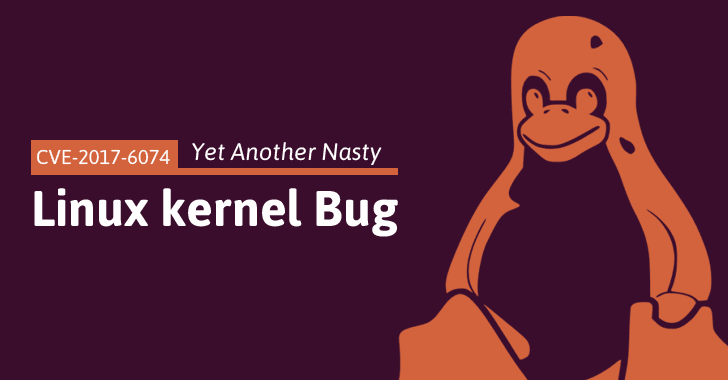11-Year Old Linux Kernel Local Privilege Escalation Flaw Discovered
Over a decade old Linux Kernel bug (CVE-2017-6074) has been discovered by security researcher Andrey Konovalov in the DCCP (Datagram Congestion Control Protocol) implementation using Syzkaller, a kernel fuzzing tool released by Google.
The vulnerability is a use-after-free flaw in the way the Linux kernel’s “DCCP protocol implementation freed SKB (socket buffer) resources for a DCCP_PKT_REQUEST packet when the IPV6_RECVPKTINFO option is set on the socket.”
“An attacker can control what object that would be and overwrite its content with arbitrary data by using some of the kernel heap spraying techniques. If the overwritten object has any triggerable function pointers, an attacker gets to execute arbitrary code within the kernel,” full disclosure mailing list about the vulnerability reads.
DCCP is a message-oriented transport layer protocol that minimizes the overhead of packet header size or end-node processing as much as possible and provides the establishment, maintenance and teardown of an unreliable packet flow, and the congestion control of that packet flow.
This vulnerability does not provide any way for an outsider to break into your system in the first place, as it is not a remote code execution (RCE) flaw and require an attacker to have a local account access on the system to exploit the flaw.
The vulnerability has already been patched in the mainline kernel. So, if you are an advanced Linux user, apply the patch and rebuild kernel yourself.
OR, you can wait for the next kernel update from your distro provider and apply it as soon as possible.





